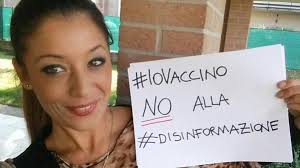Mothers use Twitter to promote vaccines. An Italian case
Milan, 6th November 2015
PRESS RELEASE
Mothers use Twitter to promote vaccines. An Italian case
The alarming drop in vaccine coverage in Italy has revived the lively debate between opponents and supporters of vaccinations. A growing concern for the issue pushed an Italian mother, Miriam Maurantonio, to start a pro-vaccination campaign online with the hashtag #iovaccino (“I vaccinate” in Italian), which soon became viral on social media.
Such a bottom-up initiative deserves attention, according to ASSET project, an EU-funded project aimed to develop a comprehensive strategy for a better response to epidemics and pandemics through improved forms of dialogue and better cooperation between science and society.
Experts from ASSET ran a data analysis of the campaign on Twitter, in order to quantify its impact and the reactions it triggered. The #iovaccino initiative started to become visible on October 13th, with a daily average of 194 tweets out of 2,400 that concerned vaccines. More than 8,500 people participated to the online discussion on vaccines, almost 1,300 of whom cited #iovaccino. Such an involvement was favoured by the participation of some highly followed accounts, including UNICEF Italia (230,035 followers) and CICAP (an Italian organization aimed to counter misinformation and pseudoscience, with 70,543 followers), both in favour of vaccines.

The campaign generated a predominantly positive reaction: many experts took a chance to recommend trusted source of information and many common people posted photos bearing a sign with the hashtag #iovaccino on it.

Several participants also highlighted and criticized opposing claims – with a particular negative emphasis on the position expressed by Codacons, a big consumers’ association that claimed to be ready to a flurry of denunciations against mandatory vaccinations. The most cited link by campaign’s supporters was that of a petition promoted by another mother, Alice Pignatti, who asked the Italian minister of health, Beatrice Lorenzin, to pass a law that would make vaccines compulsory to access public school. As of today, the petition has collected 29,544 backers.
Visit our website
http://www.asset-scienceinsociety.eu/
ASSET PRESS OFFICE
Roberta Villa
39 3398182219
villa@zadig.it
